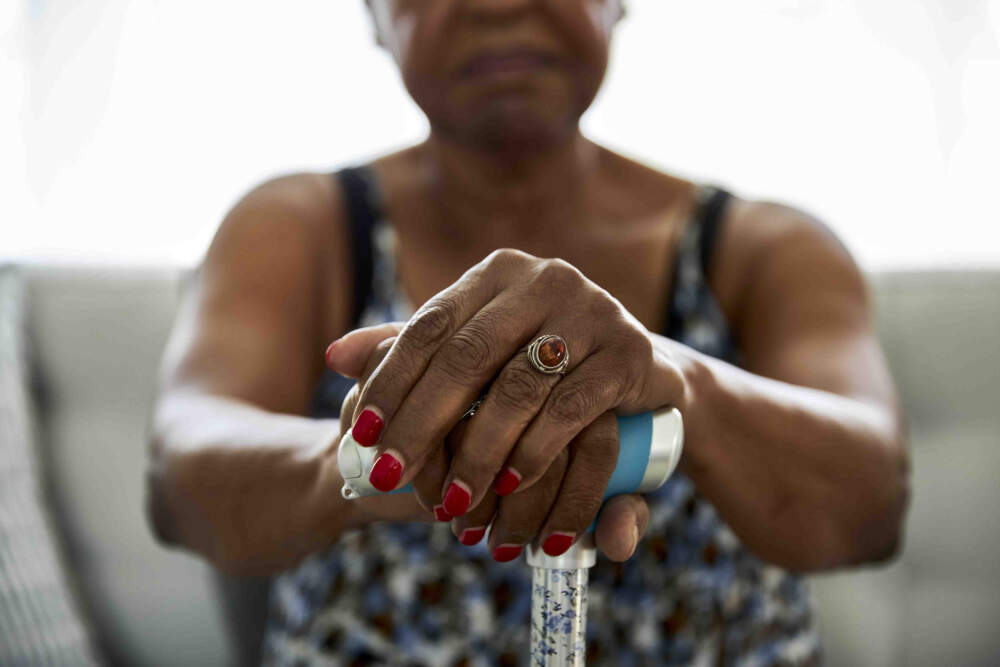Advertisement
Commentary
What’s so bad about the word ‘old’?

“You’ve got a few wisdom spots, but nothing to worry about,” the young dermatologist told me during my last annual visit.
She was delicately referring to what I’d always heard described as “age spots” or “liver spots” — those benign discolorations that develop on the hands, arms, and legs of old people — or should I say “wise people”?
While I was amused by her effort to find a positive term for this common manifestation of aging, I was also annoyed. After all, what better way to stigmatize something than to use a euphemism for it?
“Mature,” “evolved,” “well-seasoned” — these are all lovely terms, especially when applied to wine, cheese and some cuts of meat. But they don’t globally describe people my age (69) with any more accuracy than adjectives like “sweet,” “doddering,” or “vigorous.”
You know what does? “Old.”
[W]hat better way to stigmatize something than to use a euphemism for it?
But “old” is anathema to people of all ages. In a 2020 survey of 2,000 people, 33% cited “being seen as old” as a major concern, the same percentage as those who fear they’ll run out of money. Indeed, being perceived as old is a worry exceeded only by the 34% who fear that they won’t be able to care for themselves as they age.
The younger you are, the more you fear aging. In a 2009 Pew Research Center study (an old but wise one), younger respondents associated aging with negative developments such as illness, memory loss, diminished sexual activity, being unable to drive and struggling to keep up with expenses significantly more often than did older ones. Youth’s expectations of what life would be like as an old person were consistently and dramatically worse than the lived experience reported by people who actually were at least 65 years old.
This disparity between the expectations of the young and the actual lives of their elders is also predictable. But what I find so interesting is that people in their 70s and 80s don't just say that being old is tolerable, they say that they feel younger than they are. In the Pew study, nearly half of all respondents ages 50 and older said they felt at least 10 years younger than their actual age, and among those ages 65 to 74, a third said they felt 10 to 19 years younger.
All of which begs this question: What is the definition of “old”? Is it the age at which we are eligible to collect a pension or Social Security? When we become a hazard on the highway? Celebrate regular bowel movements? Hunt for the glasses that are perched on our foreheads?
According to an Ipsos study, the answers vary dramatically based on the average life expectancy in the respondent's country. Most Europeans set the start of “old age” at 65, most Americans at 70 or 71 for men, and 73 for women. In many African countries, people define an elderly person as anywhere from 50 to 65.
But the definition also varies based on the age of the person responding to the question. For instance, in the Ipsos study, 40% of respondents under the age of 50 consider someone old if they are between 60 and 69 years old. But only a quarter of respondents aged 50-64 felt that way. The data bear out what I and so many of my peers have experienced: The older we are, the more likely we are to set the threshold for “old” at a later age. And we do that because we, like our children and grandchildren, fundamentally define “old” as “bad.”
That’s why I prefer the approach of The World Economic Forum, which defines old age through a measure called “prospective age” which looks at the average number of years people have left to live. By their metric, being old doesn’t start at age 65, but at the age at which people have an average of 15 more years left to live, and that varies by time and geography. For instance, in 1950, Swedish men had an average life expectancy of 78.4 years. By 2010, it had increased to 83, while the average lifespan for a Russian man that year was 77 years.
This time-left-to-live calculation both terrifies and motivates me. With this new sense of my own mortality comes gratitude, sadness and a productive sense of urgency.
I don’t think that hard realities are affected much by whether someone is called “homeless” or “unhoused,” a “victim” or a “survivor,” whether they’re “called out” or “called in,” or whether their possessions are “used” or “upcycled.” And I readily admit that I don’t like many of the physical changes that have accompanied aging, and I dread the cognitive ones likely to come.
But I also welcome the fact that I care less about other people’s opinions of me, that I’ve developed and maintained loving relationships with a wide and diverse variety of people, that I laugh more easily and still laugh more than I cry.
I want to acknowledge that I’m old and still be seen for who I am. I want my cohort of late Boomers to be regarded as embodying the same incredible diversity of physical abilities, emotional strengths, aspirations and regrets as people of any other generation. And I don’t want the phrase “old soul” to be considered a compliment when applied to a young person, or the realities of living in an “old body” to be an insult to a person of any age.
My dermatologist is welcome to call my little specks of melanin “wisdom spots” if it makes her feel better. But honestly, age spots are fine with me.
